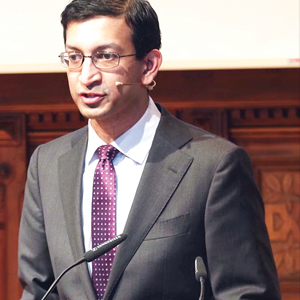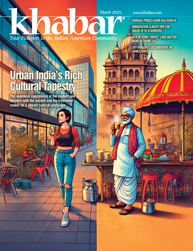Raj Chetty Maps the Unequal Paths to Prosperity

Harvard University economist Raj Chetty, who was recently awarded the university’s coveted George Ledlie Prize, knows that the American dream is more alive for some people than others.
He and other economists at Harvard have used tax records to create the Opportunity Atlas, an interactive tool that shows how economic outcomes for children can vary considerably from one neighborhood to another.
Chetty, who came to the U.S. from India when he was just 9, recognizes the opportunities that he had growing up—all because his parents were educated. Among low-income families in developing countries, it’s common for only one child in a family to get an advanced education, because there isn’t enough money to educate them all.
“And it so happened to be that my mom was the one chosen in her family, and my dad was the one chosen in his family,” Chetty said. “And I could kind of see how that’s played out through the generations in my own family, through the opportunities my cousins have had versus what I’ve had.”
As director of Opportunity Insights, a group of economists based at Harvard who study inequality, Chetty is helping policymakers and others understand the factors that determine economic mobility, so they can find ways to make the American dream more achievable.
“There are some places in America where kids with the exact same background have much better chances of rising up,” Chetty said. “There are other places where they look much worse.”
More of ChaiTime here:
http://www.khabar.com/magazine/chaitime/
Compiled and partly written by Indian humorist MELVIN DURAI, author of the novel Bala Takes the Plunge.
[Comments? Contributions? We would love to hear from you about Chai Time. If you have contributions, please email us at melvin@melvindurai.com. We welcome jokes, quotes, online clips, and more.]
Enjoyed reading Khabar magazine? Subscribe to Khabar and get a full digital copy of this Indian-American community magazine.
blog comments powered by Disqus











